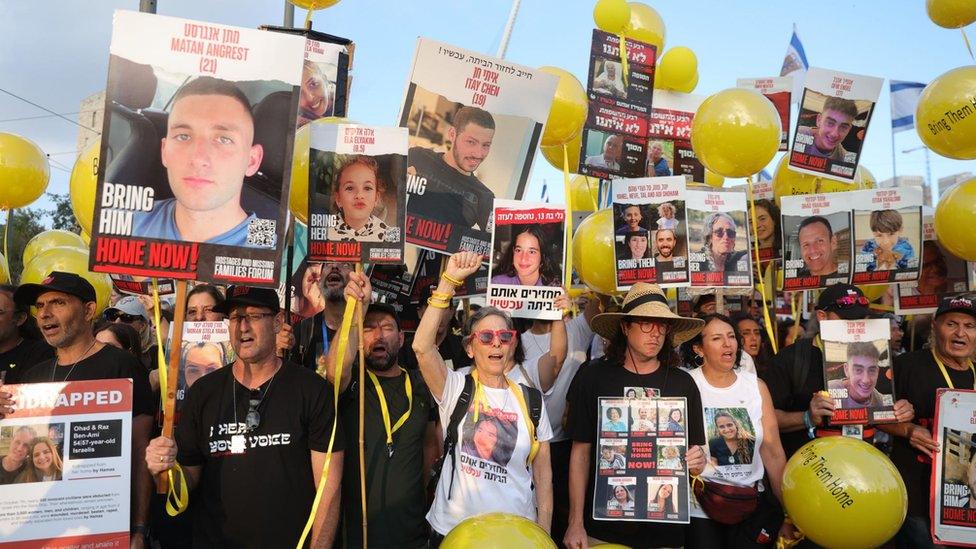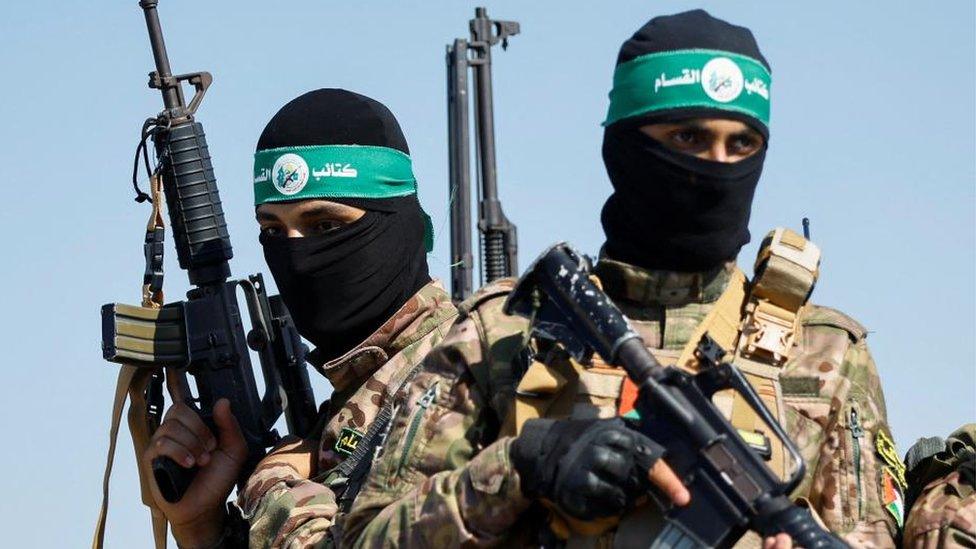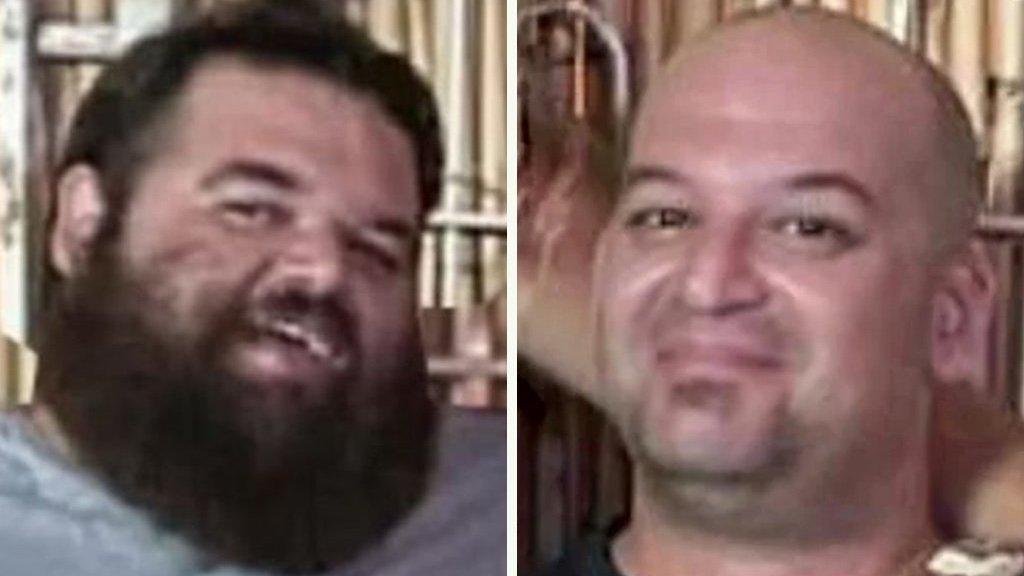March reaches Jerusalem calling for release of Israeli hostages
- Published

During their march protesters stopped to release yellow helium balloons
Thousands of Israelis have joined the families of hostages held in Gaza to call on the government to prioritise securing their release.
Protesters walked from Tel Aviv to Jerusalem before holding a demonstration outside Prime Minister Benjamin Netanyahu's residence.
He has been criticised for not doing more to free those held by Hamas.
It comes as US President Joe Biden reiterated calls for a two-state solution.
Of the estimated 240 people taken hostage by Hamas during their deadly 7 October attacks, only four have been freed so far and another, a soldier, was rescued in an Israeli operation.
This week Israel's military said it had found the bodies of two hostages - 65-year-old Yehudit Weiss and 19-year-old soldier Noa Marciano - in the Gaza Strip.
The protest calling for the hostages' release started in Tel Aviv on Tuesday before heading to Jerusalem. Near the end of their march protesters stopped briefly to release hundreds of yellow helium balloons.
"We want answers," said Ari Levi, who had two family members - including his 12-year-old son - taken by Hamas from kibbutz Nir Oz on 7 October.
"It's not normal to have children kidnapped for 43 days. We don't know what the government is doing, we don't have any information," Mr Levi told the AFP news agency.
"I want the government to bring them home to us," said Dvora Cohen, 43, whose brother-in-law and 12-year-old nephew are both believed to be held by Hamas.
In a press conference on Saturday night Mr Netanyahu said that "until now there has not been a hostage release deal", adding that "when we have something to say, we will update you".
He said that the first goal of the war is to destroy Hamas, the second is to return the hostages and the third is to eliminate the threat from Gaza.
On Saturday, about 400 people protested in Caesarea, north of Tel Aviv, calling on Mr Netanyahu to resign, according to local media reports.
One sign read: "He who blames only the army does not deserve to command it."
Last month Mr Netanyahu swiftly deleted a social media post blaming military and security chiefs for allowing the Hamas attacks to take place. He later apologised.
Separately, in an article published in the Washington Post, external on Saturday, Mr Biden said the two-state solution is "the only way to ensure the long-term security of both the Israeli and Palestinian people".
The president was referring to a final settlement that would see the creation of an independent state of Palestine living peacefully alongside Israel.
"A two-state solution - two peoples living side-by-side with equal measures of freedom, opportunity and dignity - is where the road to peace must lead," Mr Biden wrote, adding that achieving it would require "commitments from Israelis and Palestinians".
The article - which also accused Hamas of having an "ideology of destruction" - appeared to be aimed at Mr Netanyahu, who has opposed the two-state solution throughout his political career.
His survival as prime minister depends in part on support from Israeli hardliners who believe the entire territory between the River Jordan and the Mediterranean Sea was given to the Jewish people by God.
Mr Netanyahu has previously said that Israel must maintain "overall military responsibility" in Gaza "for the foreseeable future".
Mr Biden also said the Palestinian Authority should govern the Gaza Strip and the West Bank after the Israel-Hamas war, adding that his government is prepared to issue visa bans against "extremists" attacking civilians in the occupied West Bank.

More on Israel-Gaza war
From Gaza: Giving birth with no painkillers under the bombs in Gaza
From Israel: Hostages' fates haunt Israel as Gaza war intensifies
Explained: The faces of hostages taken from Israel
History behind the story: The Israel-Palestinian conflict

- Published11 October 2023

- Published27 February
